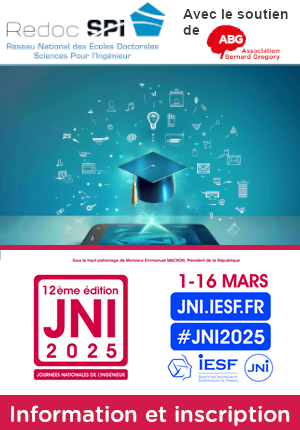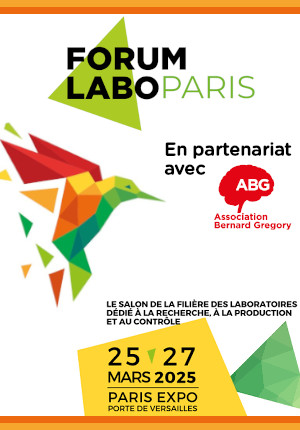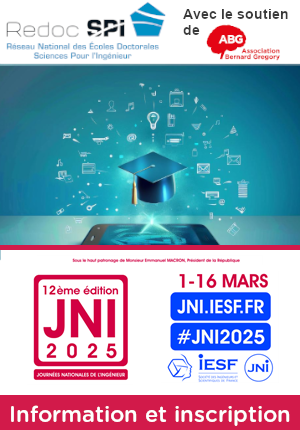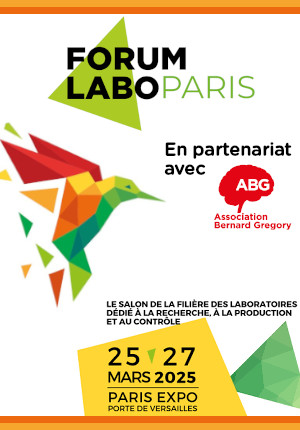Ultrafast nonlinear optical response and dynamics of 2D thin films
| ABG-127691 | Sujet de Thèse | |
| 20/12/2024 | Contrat doctoral |
- Physique
Description du sujet
Name of the laboratory: Institut Fresnel, Laser-Matter Interaction team (ILM)
Thesis advisor: Konstantinos Iliopoulos
Institut Fresnel, Domaine Universitaire de Saint Jérôme, 13397 Marseille
Tel: 06 71 31 27 34
Subject’s title: Ultrafast nonlinear optical response and dynamics of 2D thin films
Subject description:
Two-dimensional thin films are well-known for their high optical nonlinearities. For this reason, they are currently the best candidates for mode-locking of laser systems.1 Recently, during two PhD thesis, we optimized Sb2Te3 and Bi2Se3 layers to obtain significant nonlinear absorption. More specifically, the saturable absorption behavior obtained was the highest ever reported in the field of nonlinear optics by similar experimental techniques.2-5
These high optical nonlinearities are emanating from the topological insulator character of the layers which can be observed in 2D structures. However, the relation between the structural characteristics of topological insulators and their optical nonlinearities is still not sufficiently explored. The target of the thesis is to shed light on the origins of the nonlinear optical properties of 2D topological insulators (like Sb2Te3, Bi2Te3 and Bi2Se3). This will allow a better understanding of the physical mechanisms that give rise to the nonlinear refraction and absorption of the thin films. The objectives of the thesis are the following:
Objective 1: Thin film deposition and preparation. The thin films will be deposited by the electron beam deposition technique available in a modern facility established in Fresnel Institute (Espace Photonique). An optimal crystallization of the thin film layers is necessary in order to enhance the optical nonlinearities. This is currently done by our group by heating the thin films in an oven. During this thesis a new experimental setup will be built, which will allow a higher precision annealing by using a high repetition rate femtosecond laser.
Objective 2: Nonlinear optical studies. The deposited and optimized 2D layers will be studied by means of the Z-scan technique, already existing in Institute Fresnel. For these studies a femtosecond laser system will be employed. This is a hybrid (crystal/fiber), passively mode-locked laser delivering 400 fs duration pulses at 1030 nm. The oscillator provides pulses at a 40 MHz repetition rate. An optical parametric amplifier has been very recently installed at the exit of the femtosecond laser, which will allow tuning the laser wavelength at the UV, visible and IR parts of the spectrum (200 nm to 2.5 μm). This is an ideal laser system for the thesis, as it will allow the investigation of the impact of the repetition rate (tunable between 1 Hz and 40 MHz), the wavelength and the pulse duration (the latter can be adjusted from 80 fs up to 20 ps) on the nonlinear optical responses.
Objective 3: Ultrafast dynamics of the 2D layers. A deeper understanding of the laser-matter interaction will be achieved through a thorough study of the carrier dynamics of the topological insulators during their excitation with light. For this reason, a pump-probe optical spectroscopy setup will be built by the PhD student. Briefly, the higher energy pump pulses will allow to generate photo-excited carriers, while less intense probe pulses will detect the transmittance change of the sample. These studies will allow a precise study for several different delays between the pump and the probe pulses.
The combination of these two approaches will allow retrieving the full spectral dependence of the investigated topological insulators and understand the underlying photon/ electron interactions.
Apart from the nonlinear optical investigations the student will participate at all the experimental steps required for obtaining giant optical nonlinearities. This procedure includes thin film deposition, annealing, X-Ray Diffraction studies (XRD), Scanning Electron Microscopy (SEM) studies and Atomic Force Microscopy (AFM) investigations.
Bibliography:
1) M. Kowalczyk et al. Optical Materials Express 6, 2273-2282 (2016).
2) R.-N. Verrone et al. ACS Applied Nano Materials 3, 7963-7972 (2020).
3) C. Moisset et al. Nanoscale Adv. 2, 1427-1430 (2020)
4) A. Karimbana-Kandy et al. Optical Materials 143, 114211 (2023).
Prise de fonction :
Nature du financement
Précisions sur le financement
Présentation établissement et labo d'accueil
L’Institut Fresnel résulte de la fusion de 3 laboratoires sur le campus de Marseille Nord, dans les domaines de la photonique, de l’électromagnétisme et de l’image.
Les activités de recherche concernent notamment les fibres photoniques et les méta-matériaux, la segmentation active et le traitement multidimensionnel, la reconstruction électromagnétique et les micro-ondes, l’endommagement laser et la bio-photonique, la propagation des ondes dans les milieux aléatoires, les filtres interférentiels… autant de thématiques primordiales sur la scène scientifique internationale.
La production scientifique est de plus 100 articles par an dans les revues internationales à comité de lecture.
L’Institut favorise l’émergence de jeunes talents (médaille de bronze CNRS, prix du doctorant de la ville de Marseille…), comme la reconnaissance de chercheurs confirmés (Prix Ampère de l’Académie des Sciences, Médaille Blondel, Médaille du CNRS, Prix du rayonnement international de la ville de Marseille etc.).
L’Institut Fresnel participe à la stratégie scientifique, politique et économique des établissements universitaires et institutionnels d’Aix-Marseille et est un acteur important de l’innovation dans ses domaines de compétence.
L’équipe ’Interaction Laser Matière’ mène des travaux de recherche sur la physique et les applications des phénomènes d’’interaction laser matière à fort flux lumineux. Les thématiques traitées concernent principalement les problématiques d’endommagement laser des matériaux et composants optiques. Les recherches menées traitent d’une part la compréhension des phénomènes fondamentaux de l’interaction laser / matière par le développement d’expériences et de modèles, et d’autre part la mise en œuvre de ces phénomènes pour des applications spécifiques.
Site web :
Profil du candidat
Le candidat doit avoir des bases solides sur l’optique et l’optique non-linéaire.
Vous avez déjà un compte ?
Nouvel utilisateur ?
Vous souhaitez recevoir nos infolettres ?
Découvrez nos adhérents
 ADEME
ADEME  ASNR - Autorité de sûreté nucléaire et de radioprotection - Siège
ASNR - Autorité de sûreté nucléaire et de radioprotection - Siège  ANRT
ANRT  PhDOOC
PhDOOC  Nokia Bell Labs France
Nokia Bell Labs France  CESI
CESI  Groupe AFNOR - Association française de normalisation
Groupe AFNOR - Association française de normalisation  CASDEN
CASDEN  Institut Sup'biotech de Paris
Institut Sup'biotech de Paris  Aérocentre, Pôle d'excellence régional
Aérocentre, Pôle d'excellence régional  SUEZ
SUEZ  Généthon
Généthon  Ifremer
Ifremer  MabDesign
MabDesign  TotalEnergies
TotalEnergies  ONERA - The French Aerospace Lab
ONERA - The French Aerospace Lab  Tecknowmetrix
Tecknowmetrix  MabDesign
MabDesign  Laboratoire National de Métrologie et d'Essais - LNE
Laboratoire National de Métrologie et d'Essais - LNE
-
EmploiCDIRef. ABG129192Association Bernard Gregory (ABG)Paris (3ème) - Ile-de-France - France

Business Developer (F/H)
IndifférentNiveau d'expérience indifférent -
EmploiCDIRef. ABG129119AguaroNantes - Pays de la Loire - France

Docteur·e Data Environnement
Ecologie, environnementJunior -
EmploiCDIRef. ABG128844Institut National de Recherche et SécuritéVandoeuvre-les-Nancy - Grand Est - France

Chercheur en psychologie appliquée au travail et aux risques psychosociaux (H/F)
Psychologie, neurosciencesConfirmé











